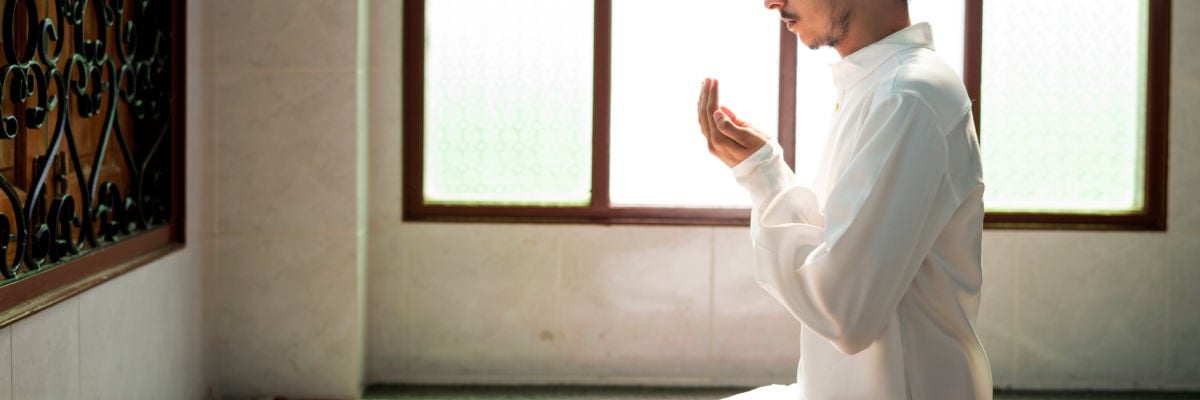
A common question raised in interfaith dialogue is whether Christians and Muslims worship the same God. In this excerpt from Catholic Answers Live, Karlo Broussard addresses this complex issue, explaining the Catholic Church’s position as outlined in the Catechism of the Catholic Church paragraph 841. He discusses the concept of sufficient philosophical knowledge of God and how it applies to Muslims, even with their differing beliefs.
Transcript:
I’m a recent convert to Catholicism from Protestantism. So I’ve had to overcome a couple hurdles. I was going through the catechism and something, a little stumbling block, 841 paragraph, the church’s relationship with Muslims. And it says basically that we worship the same God as the Muslims do. Not trying to be scandalized by that at all, but just my brief familiarity with Islam is that Allah deals in deception. So I mean, I kind of find that hard to square away with our Christian view of who God is in terms of them being the same person. So I was hoping you could maybe square this away with me.
Yeah, Andrew, it’s a great question, my friend. First of all, I want to recommend a resource to you. Philosopher by the name of Ed Fazer has an article online that I found was very helpful and very well written and clear and it’s entitled Christians, Muslims, and the Reference of God. And I think he does a good job articulating the church’s position here in paragraph 841 in the catechism, which it says, these Muslims profess to hold the faith of Abraham and it states, “Together with us, they adore the one merciful God mankind’s judge on the last day.” And so there you have the church making a judgment that the reasonable or philosophical knowledge that Muslims have of God as the infinite reality, creator of heaven and earth is sufficient such that they are directing worship to the proper object, to the same object, that reality to which we as Christians direct worship, even though they get many things wrong about that same reality to which they are directing worship.
Is it the case that you can have such error, you can have enough error about a reality to which you’re directing worship that you would no longer be directing worship to the same reality? Yes, that’s possible. And that’s a little bit difficult to discern and to know where that boundary is, but at least what we can say here, Andrew, is that the church is making a judgment that given their philosophical knowledge of the infinite reality as the uncaused cause and the creator of heaven and earth, that that reasonable knowledge, that philosophical knowledge, what we can know about God through the natural light of human reason is sufficient such that they are directing worship to the same reality that we are directing worship to, even though they get some things wrong about the very nature of God. And so that’s what I would say about that.
Again, I would recommend Dr. Fazer’s article where he does a really good job articulating sort of what constitutes enough error to where you’re no longer referring to the same person and a sufficient enough knowledge, a sufficient amount of knowledge, even though it’s mixed with error such that you would still be referring to the same person. And so he does a good job of navigating in between those parameters in order to show and elucidate the church’s teaching here in paragraph 841 of the Catechism.



